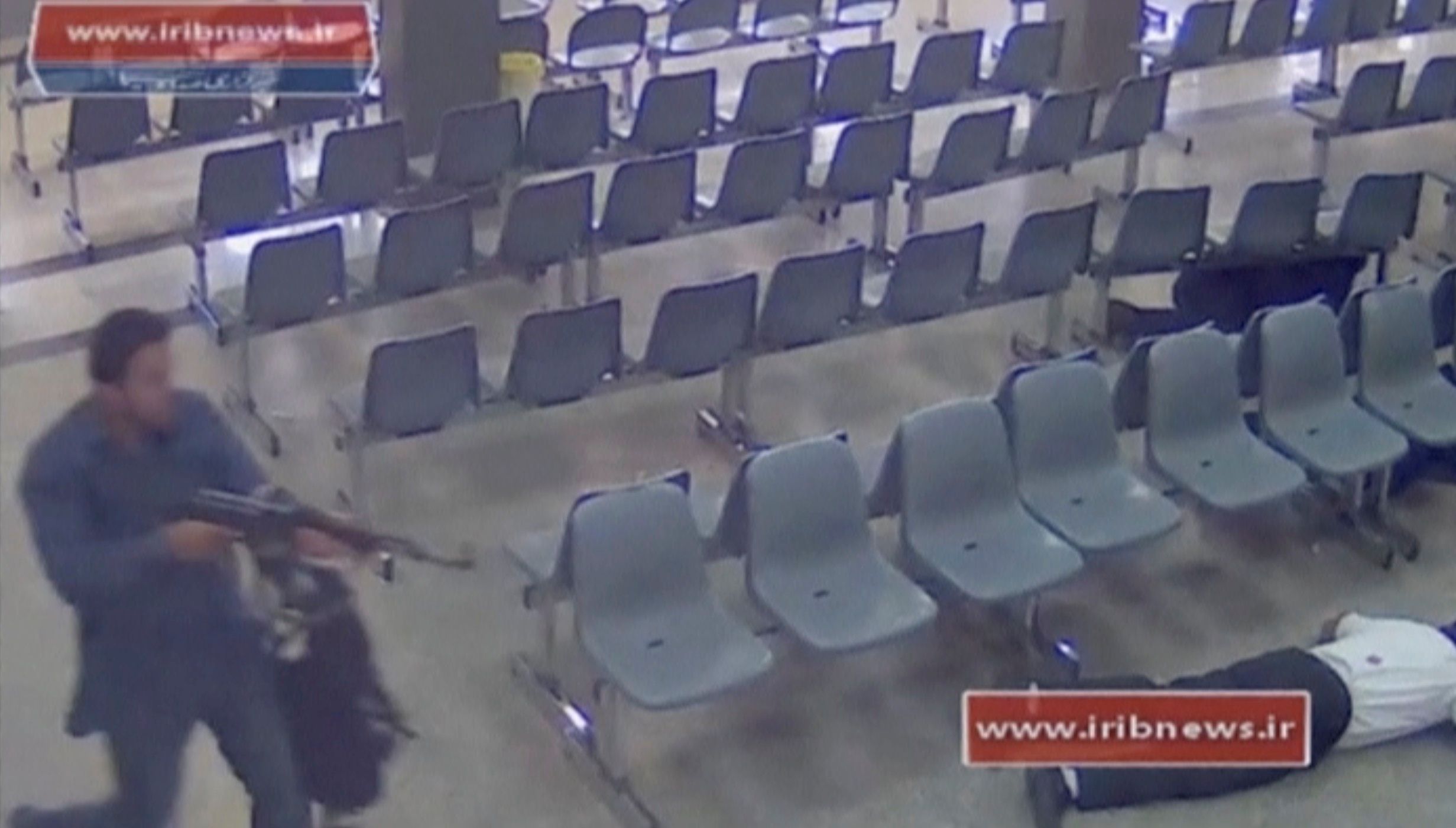
Last week ISIS staged an unprecedented terrorist attack in the heart of Iran. At least 17 people were killed and dozens more were injured at two symbolic locations of the Islamic Republic: the parliament and the mausoleum of Ayatollah Khomeini.
The reaction from Iran's clerical rulers was predictable; they variously blamed their regional and international enemies – the USA, Israel and Saudi Arabia.
Ignored by Iranian officials and by most expert commentators, however, was any recognition that Tehran's domestic and regional policies were contributing factors. In other words, the expansion of ISIS into Iran was a classic case of Iranian regime blowback.
The conventional wisdom suggests that Iran would remain immune to ISIS as a global terrorist threat. Given Iran's majority Shia population and the fact that ISIS is a deeply anti-Shia cult informed by an extremist Sunni neo-Wahhabism, it has been widely assumed that Iranian recruits to ISIS would be difficult to find.
We now know that Iranian Kurds were behind the ISIS attack in Tehran. The reasons are broadly similar to what we have learned about the politics and psychology of Islamic radicalization. Marginalized, angry and alienated populations exposed to salafi ideology are susceptible to ISIS recruitment.
RELATED: What Has Rouhani's Victory in Iran Changed?
Approximately eight percent of Iran's population is Sunni, mainly representing Arab, Baluchi, Turkmen and Kurdish minorities. They live on Iran's periphery and suffer disproportionately from unemployment and discrimination.
Credible reporting suggests that a small number from these groups have joined ISIS due to the same socio-economic push and pull factors that drives ISIS recruitment worldwide. According to the distinguished Iranian journalist Mashallah Shamsolvaezin, the "border towns and villages and tribes along Iran's east, west and southern borders are poor and vulnerable to extremism."
This has produced social conditions where "young unemployed men can be wooed and recruited." In other words, Iran now has a homegrown terrorist problem of its own. Its regional foreign policy has also been a contributing factor.
ISIS has a genocidal view toward Shia Muslims. Partly because of this, Iran and its proxies are fighting ISIS on various battlefields across the Middle East. At the same time, Iran's sectarian foreign policy has indirectly contributed to the rise ISIS.
In Iraq, Tehran's critical support for Shia majoritarianism significantly contributed to Sunni marginalization, indirectly amplifying the ideological appeal of ISIS. Then there is Syria.
When the Arab Spring protests reached Syria in 2011, ISIS didn't exist. Peaceful protesters chanting non-sectarian slogans were confronting the 41-year rule of the House of Assad. From the outset, they were met with state-sanctioned repression that rapidly extended to war crimes and crimes against humanity.
Gradually, the uprising militarized and then radicalized as regional actors entered the fray. The subsequent melee is responsible for the worst refugee crisis of the 21 st century and for killing nearly half a million people.
The Assad regime – backed by Iran (and Russia) – bears the lion's share of responsibility for this state of affairs. It is from the killing fields of Syria that the ISIS variant of salafi-jihadism arose and expanded.
Today, Iran justifies it support for Assad by claiming it is fighting ISIS and Al Qaeda. In doing so, however, it conveniently reads the Syrian conflict backward instead of forward.
From the inception of the conflict, and prior to the rise of salafi-jihadism in Syria, Iran strongly backed the Assad regime. Its early intervention had nothing to do with combating religious extremism for the simple reason that this problem barely existed in the early months of the Syrian uprising.
In the past six years, this changed and Iran stepped up its intervention. Mostly notably, it recruited a pan-Shia militia that, along with Hezbollah, has done the bulk of the fighting in defense of the Assad regime.
Iran's critical role in Syria has significantly contributed to the spread of sectarianism across the Middle East: ISIS has been a key beneficiary of this. Now the blowback has come to Tehran.
RELATED: Why Trump's Saudi Arms Deal is a Bum Deal
ISIS is fundamentally the product of political authoritarianism in the Sunni Arab world. Its theological home is in Saudi Arabia. The legacy of political tyranny in the Arab world, buttressed by the consequences of the US invasion of Iraq, created social conditions that allowed this extremist cult not only to emerge but also to proliferate. Iran's role in this equation has been generally unrecognized.
Though indirect, Iran's contribution has been significant. Its domestic policies discriminating against ethnic/religious minorities, and its sectarian foreign policy in Iraq and Syria are key elements that has contributed to ISIS' expansion. In other words, Iran's chickens have come home to roost.
Nader Hashemi is the Director of the Center for Middle East Studies at the University of Denver. His latest book is "Sectarianization: Mapping the New Politics of the Middle East."
Uncommon Knowledge
Newsweek is committed to challenging conventional wisdom and finding connections in the search for common ground.
Newsweek is committed to challenging conventional wisdom and finding connections in the search for common ground.
About the writer
To read how Newsweek uses AI as a newsroom tool, Click here.








